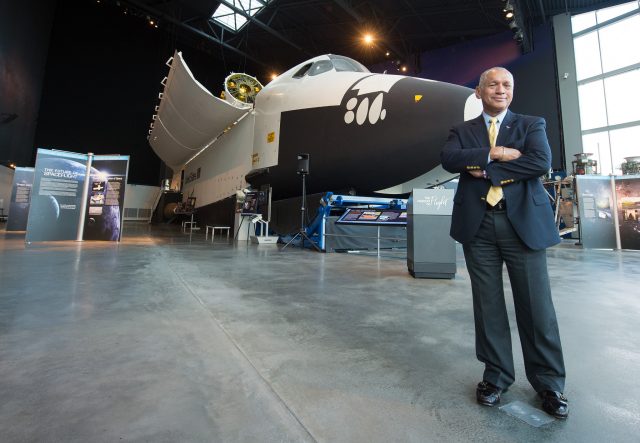
Kraft, the agency's original flight director, and the man for whom NASA's mission control is named, is skeptical of the plan to build a very large rocket with a similar capability to the Saturn V used by Apollo program. He and a number of Apollo engineers are concerned that NASA can't afford to fly the expensive rocket more than once every other year and that a lack of missions will have dangerous consequences for the rocket's reliability. Some, like Kraft, have argued that NASA should cede rocket-building to private companies like the United Launch Alliance and SpaceX, which have demonstrated an ability to do so safely and at a lower cost.
After summarizing this idea, Honda asked Bolden, "How do you respond to these sorts of concerns about the Space Launch System, and what is NASA doing to work with industry and government partners to develop a spectrum of missions beyond EM-1 and EM-2 to fully utilize this enormous national asset?"
The administrator's response began by praising Kraft as a role model and a mentor. "He was my center director when I was first became an astronaut and went to the Johnson Space Center," Bolden said while showing emotion. "He is an incredible human being." However, Bolden added that Kraft's criticisms were premised on misinformation. "His statement about SLS, I think, and I cannot speak for Dr. Kraft, I think a lot of people's statements like that are based on how we operated when they were in charge, or around. That's a long time ago. The SLS represents the best technology that we have today to leave the planet."
Although the SLS rocket does indeed use modern manufacturing processes and sophisticated computer simulations, it is in many ways based on technology from the 1970s. For its initial boost, the SLS will use solid-rocket boosters based on those that performed the same function for the shuttle. The rocket will be powered by four space shuttle main engines, which NASA began developing as far back as 1969.
Bolden then reiterated that Kraft knew more than him about rockets, but he again qualified this praise: "I have the advantage of a team around me that he didn't have," he said. "You have to remember. Most of us forget. I have a very mature leadership team. When Dr. Kraft was in mission control, and when he led the Johnson Space Center, we went to the Moon. Most of the people were 20 years old. They didn't know anything."
This was a somewhat curious statement about a generation that knew enough to get humans to the Moon. Kraft and other early leaders of the Mercury Program, who wrote flight rules in the late 1950s and early 1960s, were making it up as they went along. They helped to create human spaceflight. But by the time of the Apollo program, Kraft and his flight directors were mostly in their late 20s and 30s. Kraft himself was 45 years old when the Apollo 11 mission landed on the Moon. Later, Kraft directed the Johnson Space Center from 1972 to 1982, when the shuttle was developed and initially flown.
During his long career at NASA, Kraft was deeply involved in every rocket NASA developed to put humans into space: the Redstone and Atlas rockets used in Mercury, the Titan II rockets used during the Gemini program, the Saturn V used during the Apollo program, and the space shuttle. While Bolden may certainly have a mature leadership team at NASA, it does not seem plausible to argue that any of its members have more experience with human launch vehicles than Kraft or many others of the Apollo generation.Honda, however, was apparently satisfied with Bolden's answer. "I just needed to ask the question to clear out some of the questions I had," he said. The explanation, he indicated, was good.
reader comments
113